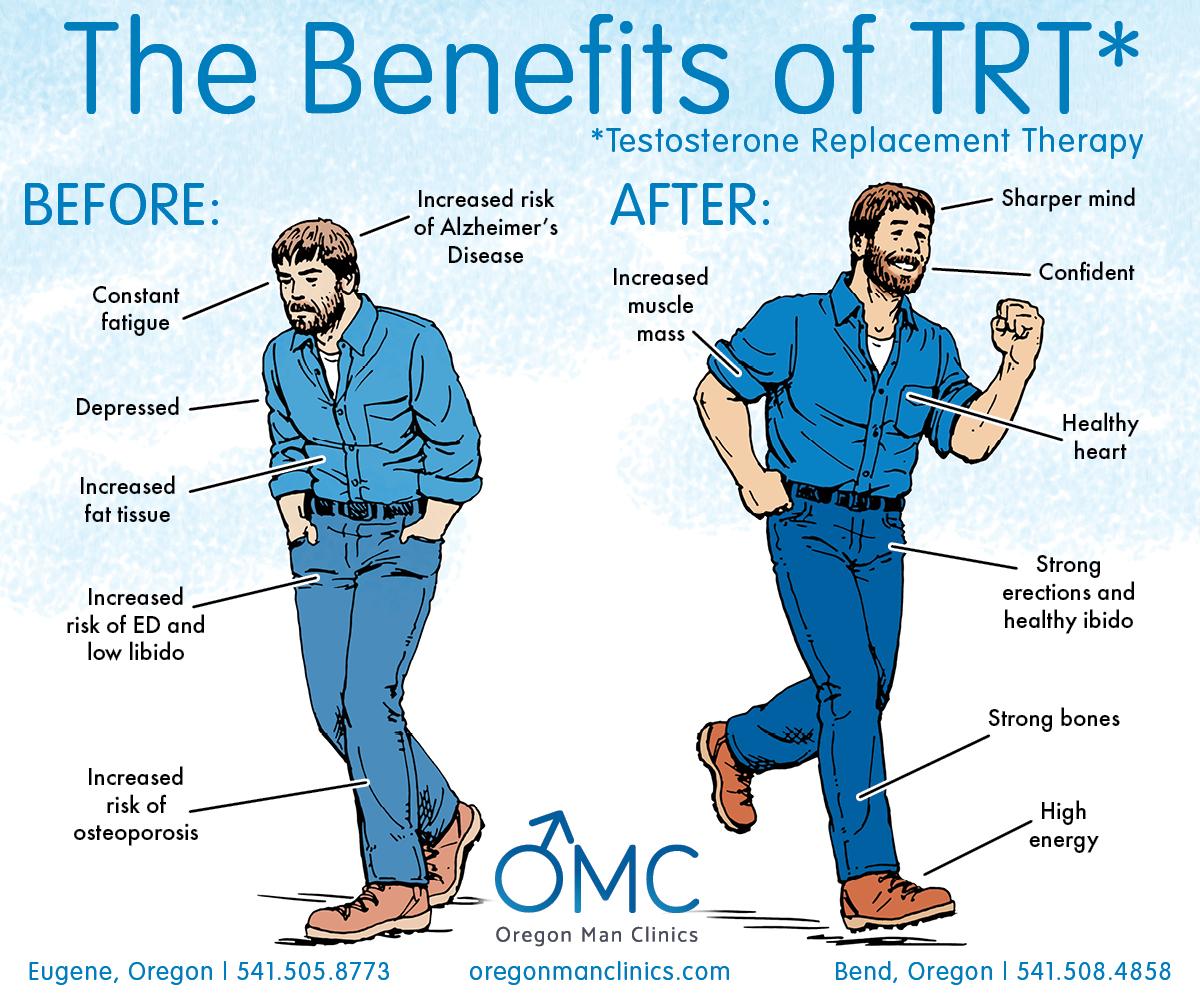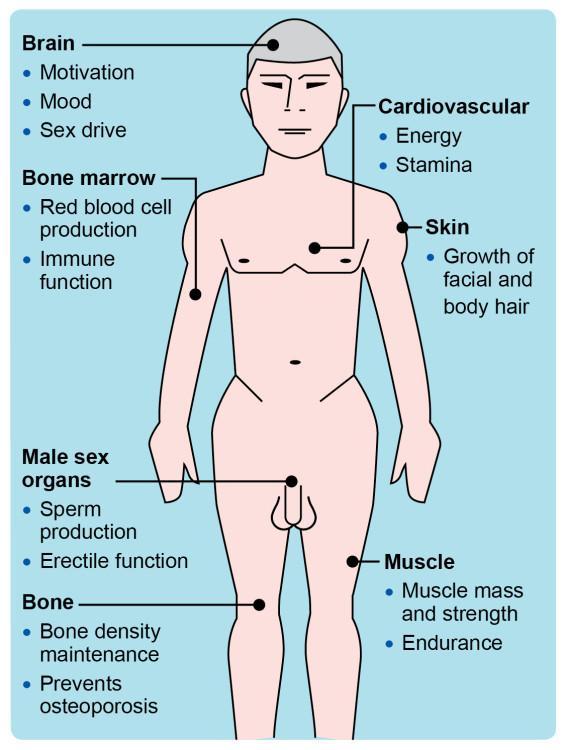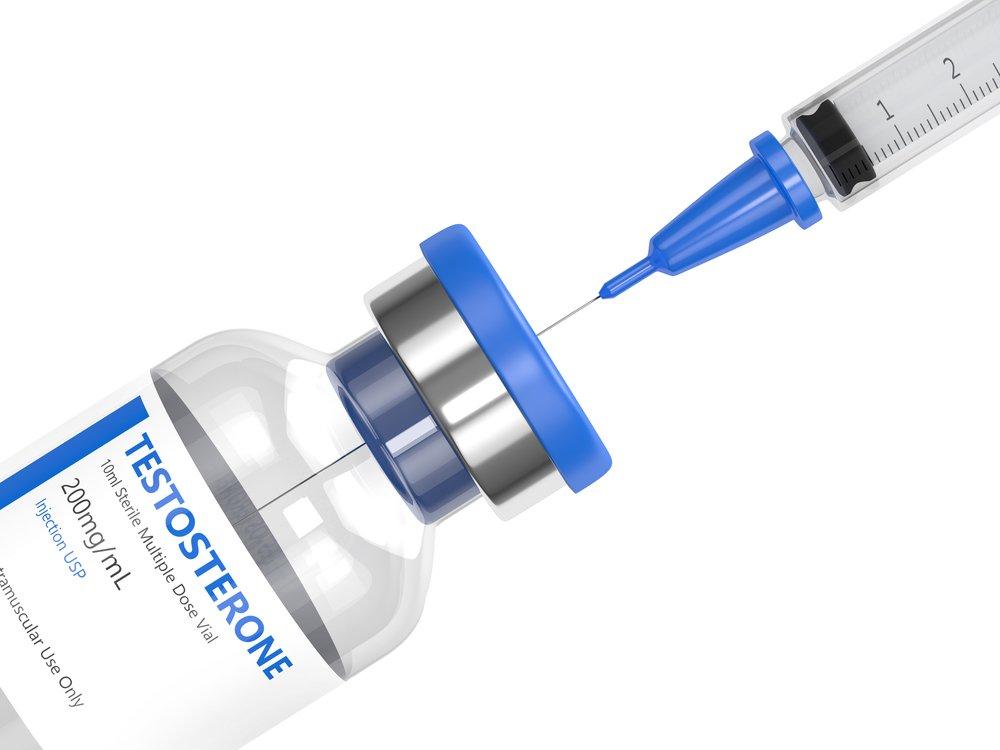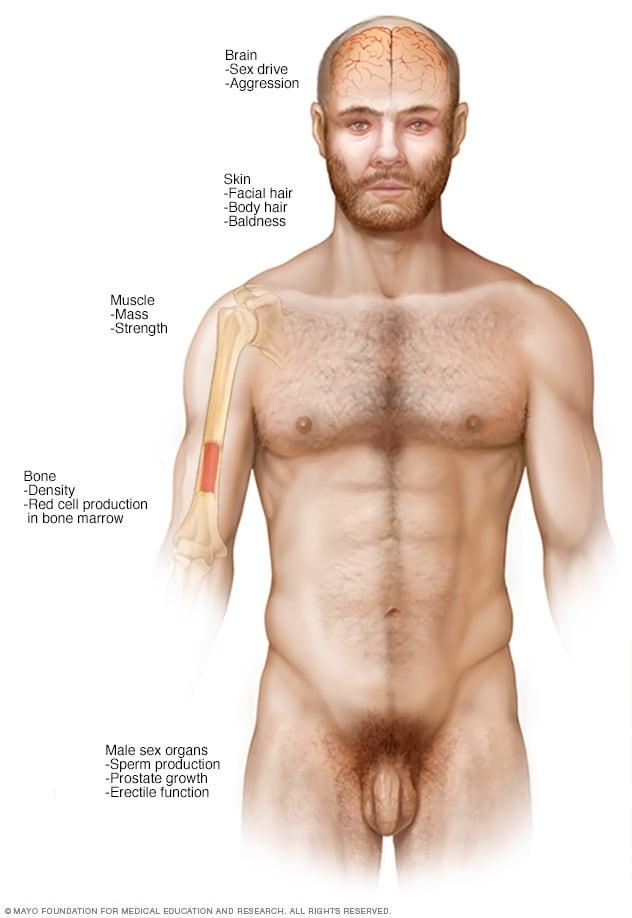Unlocking the Metabolic Code: The Role of Testosterone Therapy in Boosting Metabolism
In a world where the pursuit of wellness often feels like deciphering an intricate puzzle, one element has emerged from the shadows of scientific investigation with the potential to shift paradigms: testosterone therapy. Traditionally associated with muscle growth and enhanced vitality, testosterone’s role may extend far beyond these well-trodden benefits. Emerging research suggests that this powerful hormone could also be a key player in metabolism regulation, unlocking new avenues for individuals seeking not just weight management, but overall metabolic health. As we delve into the interplay between testosterone and metabolism, we’ll explore how this therapy may serve as a beacon of hope for those grappling with metabolic issues, ultimately reshaping our understanding of what it means to thrive in today’s fast-paced world. Join us on this journey as we uncover the science, potential benefits, and critical considerations surrounding testosterone therapy in the quest to boost metabolism.
Understanding Testosterone and Metabolism Dynamics
Testosterone is a key hormone that influences various bodily functions, including metabolism. It plays a vital role in the regulation of fat storage and muscle mass, which are both critical components of metabolic health. When testosterone levels are optimal, individuals often experience enhanced muscle strength, increased energy expenditure, and improved body composition. However, lower levels of testosterone can lead to a decline in metabolic rate, making it more challenging to maintain a healthy weight. Understanding this connection allows for a more targeted approach when considering testosterone therapy as a means to boost metabolism.
Several factors contribute to the dynamic relationship between testosterone and metabolism, including age, lifestyle, and overall health. Here are a few key aspects to consider:
- Muscle Mass: Testosterone promotes the development of lean muscle tissue, which in turn burns more calories at rest.
- Fat Distribution: It helps manage where body fat is stored, potentially reducing visceral fat that can influence metabolic syndrome.
- Energy Levels: Adequate testosterone levels can enhance energy and motivation to engage in physical activity, further supporting metabolic health.
A comprehensive view of how testosterone influences metabolism is essential for anyone contemplating therapy. The following table encapsulates some of the benefits of optimized testosterone levels on metabolism:
| Benefit | Description |
|---|---|
| Increased Basal Metabolic Rate | Higher testosterone can elevate the number of calories the body burns at rest. |
| Enhanced Physical Performance | Improved strength often leads to increased physical activity and calorie expenditure. |
| Improved Insulin Sensitivity | Testosterone may help regulate blood sugar levels, contributing to better metabolic health. |

The Role of Testosterone in Energy Regulation
Testosterone plays a crucial role in energy regulation, influencing not only how the body burns fat but also how it builds muscle. Adequate levels of this hormone can enhance metabolic efficiency, enabling the body to convert food into energy more effectively. When testosterone levels are optimal, individuals often experience increased stamina and vitality, which are essential for participating in physical activities that promote weight loss and overall health. Additionally, testosterone’s impact on muscle mass is significant, as larger muscle tissues require more energy to maintain, subsequently raising the body’s basal metabolic rate.
Moreover, the relationship between testosterone and energy levels extends to the regulation of other hormones and enzymes that govern metabolism. For instance, testosterone can enhance insulin sensitivity, leading to more effective glucose utilization and reduced fat storage. Key factors of testosterone’s role in energy regulation include:
- Increased Muscle Mass: More muscle equates to higher energy expenditure.
- Improved Insulin Sensitivity: Helps in managing body fat and energy use.
- Enhanced Stamina: Higher energy means better performance in day-to-day activities.
Understanding these dynamics can lead to better insights on how testosterone therapy might assist in boosting metabolism, ultimately helping individuals achieve their fitness and health goals.

Identifying Candidates for Testosterone Therapy
When considering testosterone therapy as a means to enhance metabolism, it’s crucial to identify the right candidates for treatment. Typically, testosterone levels can be assessed through a blood test measuring total and free testosterone. Individuals who might benefit from therapy generally exhibit symptoms indicative of low testosterone levels, such as:
- Fatigue and low energy – A noticeable decrease in overall vigor can signal hormonal imbalances.
- Decreased libido – A reduction in sexual desire is often linked to hormonal deficiencies.
- Increased body fat – Unexplained weight gain or difficulty shedding pounds can be associated with low testosterone.
- Muscle loss – Notable decreases in muscle mass or strength may suggest the need for hormone evaluation.
Additionally, some medical conditions can predispose individuals to low testosterone levels, making them suitable for evaluation. These may include:
| Condition | Relevance |
|---|---|
| Obesity | Higher body fat can impact hormone production negatively. |
| Diabetes | Often linked to decreased testosterone levels. |
| Chronic illness | Long-term health issues can affect hormone balance. |
| Stress-related disorders | Chronic stress can lower testosterone production. |
Recognizing these signs and conditions can aid healthcare providers in determining who may be an appropriate candidate for testosterone therapy, thereby making informed decisions that could enhance overall metabolic health and quality of life.

Benefits Beyond Metabolism: The Broader Impact of Testosterone
While often hailed for its role in enhancing metabolic rates, testosterone carries a wealth of other benefits that extend far beyond the biochemical realm. Research consistently highlights its importance in maintaining muscle mass, promoting healthy bone density, and improving overall mood regulation. Individuals undergoing testosterone therapy frequently note enhanced physical performance, which can significantly contribute to a more active lifestyle. This surge in energy and vitality helps to cultivate better overall fitness, empowering individuals to engage in strength training and cardiovascular activities that further bolster metabolic health.
The psychological implications of optimal testosterone levels are equally noteworthy. It has been demonstrated that adequate testosterone levels can help mitigate the risk of depression and anxiety disorders, fostering a stronger sense of well-being. Additionally, it positively influences cognitive functions, aiding in memory retention and focus. The interconnectedness of physical and mental health underscores the importance of testosterone not merely as a metabolic enhancer but as a vital contributor to holistic wellness. By addressing both body and mind, testosterone therapy opens up a pathway for individuals to lead more fulfilling lives, promoting longevity and quality in their daily experiences.
Navigating Treatment Options for Testosterone Therapy
When approaching testosterone therapy, understanding the variety of treatment options available is essential for maximizing metabolism and overall well-being. The primary forms of testosterone therapy include injections, patches, gels, and pellets. Each method has its unique advantages, and the choice often depends on individual lifestyle, comfort level, and specific health considerations. It’s crucial to consult with a healthcare provider to determine which option best aligns with your personal health goals and to ensure proper monitoring throughout the treatment.
For those interested in the efficacy of different forms of therapy, the following table outlines the key aspects of each method:
| Method | Application | Frequency | Pros | Cons |
|---|---|---|---|---|
| Injections | Intramuscular or subcutaneous | Weekly or bi-weekly | Fast-acting | May cause discomfort |
| Patches | Applied to skin | Daily | Sustained release | Possible skin irritation |
| Gels | Topical application | Daily | Easy to use | Risk of transferring to others |
| Pellets | Implanted under the skin | Every 3-6 months | Long-lasting effects | Invasive procedure needed |
When considering these options, it’s also important to assess potential side effects and monitor changes in metabolism closely. Regular follow-ups with healthcare professionals can help fine-tune therapy, ensuring that testosterone levels remain balanced while enhancing metabolic function effectively. Keep in mind that lifestyle factors like diet and exercise should work in tandem with any chosen therapy for optimal results.
Potential Risks and Considerations for Patients
While testosterone therapy can offer benefits for metabolism enhancement, it is essential for patients to consider potential risks associated with its use. Some of these risks may include:
- Hormonal Imbalance: Therapy can lead to fluctuations in hormone levels, which might result in unwanted side effects like mood swings or irritability.
- Cardiovascular Issues: Evidence suggests an increased risk of heart problems, including hypertension and heart attack, particularly in older adults.
- Prostate Health: Men undergoing testosterone therapy may have an elevated risk for prostate enlargement or even prostate cancer.
- Sleep Apnea: Patients could experience severe sleep disturbances as a side effect of therapy.
Furthermore, individuals should also be mindful of considerations related to dosage and duration of therapy. Excessive intake can exacerbate side effects and lead to complications such as:
| Complication | Possible Outcome |
|---|---|
| Gynecomastia | Development of breast tissue in men |
| Acne | Increased skin oiliness and outbreaks |
| Liver Damage | Potential long-term liver complications |
| Infertility | Reduced sperm production and fertility issues |
Integrating Lifestyle Changes to Maximize Therapy Results
To truly enhance the benefits of testosterone therapy, adopting certain lifestyle modifications can play a critical role in maximizing outcomes. Physical activity is paramount; regular exercise not only boosts metabolism but also promotes overall well-being. Incorporating strength training, cardiovascular workouts, and flexibility exercises into your routine can significantly progress your therapy results. Additionally, maintaining a balanced diet rich in nutrients supports hormonal balance. Consider focusing on:
- Lean Proteins: Encourage muscle growth and repair.
- Healthy Fats: Essential for hormone production.
- Whole Grains: Provide sustained energy levels.
- Fruits and Vegetables: Supply antioxidants for cellular health.
Furthermore, prioritizing sleep and stress management creates an environment conducive to hormone optimization. Quality sleep is vital for recovery and hormonal regulation, so aim for 7-9 hours each night. Stress can adversely affect testosterone levels; utilizing techniques such as mindfulness, meditation, or yoga can significantly alleviate tension. Here’s a quick overview of essential practices:
| Practice | Benefit |
|---|---|
| Regular Exercise | Enhances metabolism and muscle mass |
| Balanced Diet | Supports hormonal health |
| Quality Sleep | Regulates testosterone levels |
| Stress Management | Improves hormonal balance |
Q&A
Q&A: Exploring Testosterone Therapy to Boost Metabolism
Q1: What is testosterone therapy?
A1: Testosterone therapy involves the administration of synthetic testosterone to individuals with low testosterone levels. This treatment is often sought by men who experience symptoms such as fatigue, decreased libido, and muscle loss. The therapy aims to restore hormone levels to within a normal range, potentially improving overall well-being and metabolic functions.
Q2: How does testosterone influence metabolism?
A2: Testosterone plays a multifaceted role in metabolism. It helps regulate fat distribution, muscle mass, and energy levels. By promoting muscle growth, testosterone can increase basal metabolic rate (BMR), meaning the body burns more calories even at rest. Additionally, testosterone may influence the way the body processes carbohydrates and fats, further impacting metabolic health.
Q3: Is testosterone therapy an effective method for weight loss?
A3: While some studies suggest that testosterone therapy can help individuals lose weight, particularly by reducing fat mass and increasing muscle mass, it’s not a magic bullet for weight loss. The therapy may enhance overall metabolism and energy levels but should be combined with a balanced diet and regular exercise for optimal results. Consulting with a healthcare professional is crucial before starting any therapy for weight management.
Q4: Who benefits most from testosterone therapy?
A4: Testosterone therapy is primarily beneficial for those diagnosed with hypogonadism, a condition characterized by abnormally low testosterone levels. Men in this group may experience a range of symptoms that impact their quality of life. However, the therapy might not be necessary or advisable for everyone, especially those with normal testosterone levels. Individual assessments by healthcare providers are essential to determine eligibility and appropriateness.
Q5: Are there any risks associated with testosterone therapy?
A5: Yes, while testosterone therapy can offer benefits, it also carries risks. Potential side effects include acne, sleep apnea, increased prostate size, and an elevated risk of cardiovascular issues. Regular monitoring and management by a healthcare professional are vital to minimize these risks and evaluate the continued need for therapy.
Q6: Can women also benefit from testosterone therapy?
A6: Yes, women can also experience benefits from testosterone therapy, particularly those with low testosterone levels related to age or certain health conditions. In women, testosterone may help improve libido, energy levels, and muscle mass. However, the approach differs, and the therapy must be tailored and prescribed carefully to avoid adverse effects.
Q7: What lifestyle changes should accompany testosterone therapy?
A7: To maximize the benefits of testosterone therapy, individuals should adopt a holistic lifestyle approach. This includes maintaining a healthy, balanced diet rich in whole foods, engaging in regular physical activity (especially strength training), managing stress, and ensuring adequate sleep. Lifestyle changes can optimize hormonal balance and overall health outcomes.
Q8: What should someone consider before starting testosterone therapy?
A8: Before initiating testosterone therapy, individuals should undergo a comprehensive evaluation by a healthcare provider, including blood tests to assess hormone levels. It is crucial to discuss potential benefits and risks, alternative treatments, and lifestyle modifications. An informed decision can lead to better health outcomes and minimize the possibility of adverse effects.
Feel free to explore further into the intricate relationship between hormones and metabolism as well as the implications of hormone therapy for overall health!
To Wrap It Up
the exploration of testosterone therapy as a means to enhance metabolism reveals a multifaceted approach to health and wellness. While the potential benefits may be enticing, it is crucial to navigate this landscape with caution and informed decision-making. As research continues to evolve, individuals contemplating this therapy should consult healthcare professionals to tailor interventions to their unique health profiles. Ultimately, the pathway to an optimized metabolism may lie not solely in hormonal therapy, but in a holistic approach that combines diet, exercise, and lifestyle modifications. As we advance in our understanding of hormonal health, the dialogue surrounding testosterone therapy will undoubtedly continue, inviting us to consider the delicate balance between science and personal well-being.










